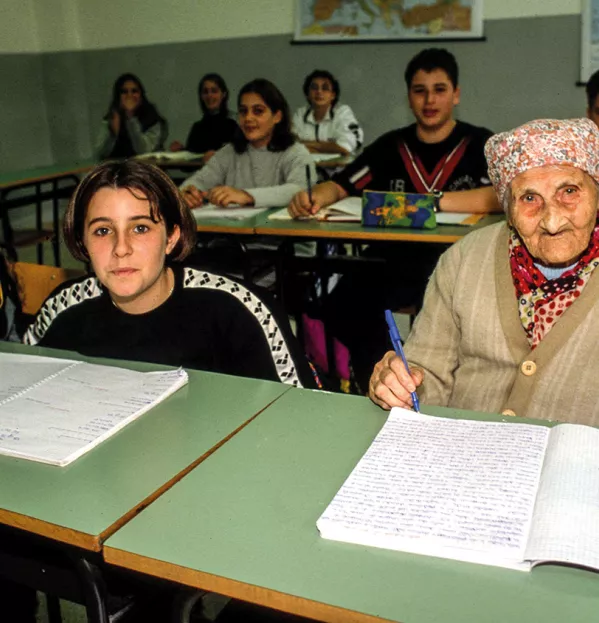National 5 exams ‘are far too long’

National 4 - and its lack of any external assessment - has in recent years provided the biggest talking point on results day. Big falls in uptake over successive years have suggested that the qualification was in need of an overhaul.
Now, however, with an announcement imminent on its future design - in a year when there was actually a 3.6 per cent increase in students presented for N4, after those who gained an N4 as a fallback were factored out - attention has largely shifted to National 5.
In 2017-18, when most subjects had longer N5 exams - or had an exam for the first time - it suffered a big fall in numbers, as well as a 2.1 percentage point drop in the A-C pass rate, compared with only a marginally reduced pass rate at Higher (while Advanced Higher’s pass rate increased slightly). And evidence gathered by the Scottish Secondary Teachers’ Association (SSTA) shows that some teachers believe pupils struggled with the longer exams.
The data comes after the Scottish Qualifications Authority’s (SQA) own analysis last week raised concerns about N5. Schools were told that, for 2017-18 only, they could still submit unit assessments in exceptional circumstances, so that pupils who failed N5 would pick up an N4 instead. This led to so many late-arriving unit entries that the SQA could not carry out its normal quality assurance procedures on all of them; as a result, the SQA will review a sample of unit assessments from selected schools and colleges.
However, chief executive Dr Janet Brown insists that the longer N5 exams do not appear to have been a major source of concern. She says: “We’re pleased to say that we didn’t see any evidence that candidates were unable to finish the paper or didn’t answer questions, so the extension to the time has worked well - in some cases we got feedback that the additional questions allowed students to answer a wider range of questions.”
She says that “2 per cent is not a significant shift” in the A-C pass rate, adding that no single subject suffered a dramatic decline in its pass rate. When asked whether students sitting N5s this year may have been at a disadvantage compared with their predecessors, because exam markers might be harder to please than teachers marking unit assessments, she insists that the system has been “very fair” every year to those taking N5s.
Brown also says that there are likely to be other factors behind the 4 per cent fall in N5 entries - from 293,220 in 2017 to 281,785 in 2017 - such as a smaller pupil roll across Scotland.
However, SSTA feedback reveals concerns about N5 among teachers. In May, Tes Scotland reported exclusively on an ongoing survey of around 1,300 members’ views on N5, and now the SSTA has shared the responses that came in since then - all submitted while exam season was underway.
One subject teacher, for example, reported a “huge reduction in numbers sitting N5 due to [the] very long exam”. Another teacher was concerned about the N5 exams because, during prelims, the “lack of the basic unit level practice for many meant they didn’t do the appropriate ongoing work, didn’t appreciate what was required and performed less well even on basic level questions”.
One SSTA member simply said: “New exams far too long for pupils to concentrate that long.” Another added that an exam of two-and-a-half hours was unreasonable for students aged 15-16 and should be split into two papers.
One respondent said on that point: “The new exam papers are too long - longer than the Higher papers this year. The pupils who are well prepared can finish each paper in well under an hour, and so may have an hour to wait around, while the pupils that struggle to answer questions are just faced with question after question that they can’t do, and a long time to wait.”
An N5 art and design teacher complained of “pure rote learning” in two new questions on the context of an artist’s work, adding: “I am left wondering what this tests and what the purpose is.” Pupils with dyslexia had found this “especially difficult and demoralising”, the teacher added.
SSTA general secretary Seamus Searson says: “The national qualification system needs to be reviewed as the present system is not working for our pupils.”
You need a Tes subscription to read this article
Subscribe now to read this article and get other subscriber-only content:
- Unlimited access to all Tes magazine content
- Exclusive subscriber-only stories
- Award-winning email newsletters
Already a subscriber? Log in
You need a subscription to read this article
Subscribe now to read this article and get other subscriber-only content, including:
- Unlimited access to all Tes magazine content
- Exclusive subscriber-only stories
- Award-winning email newsletters